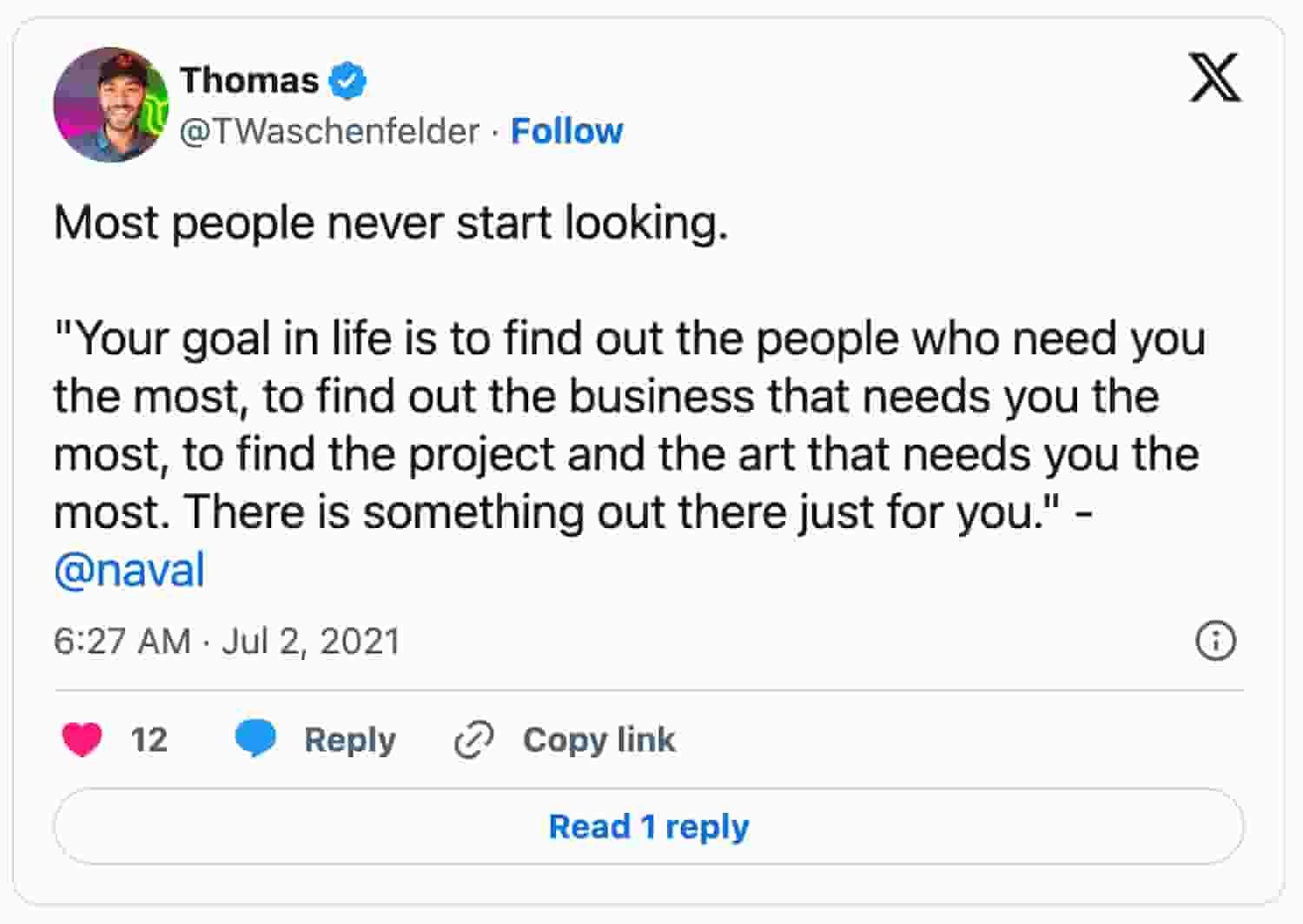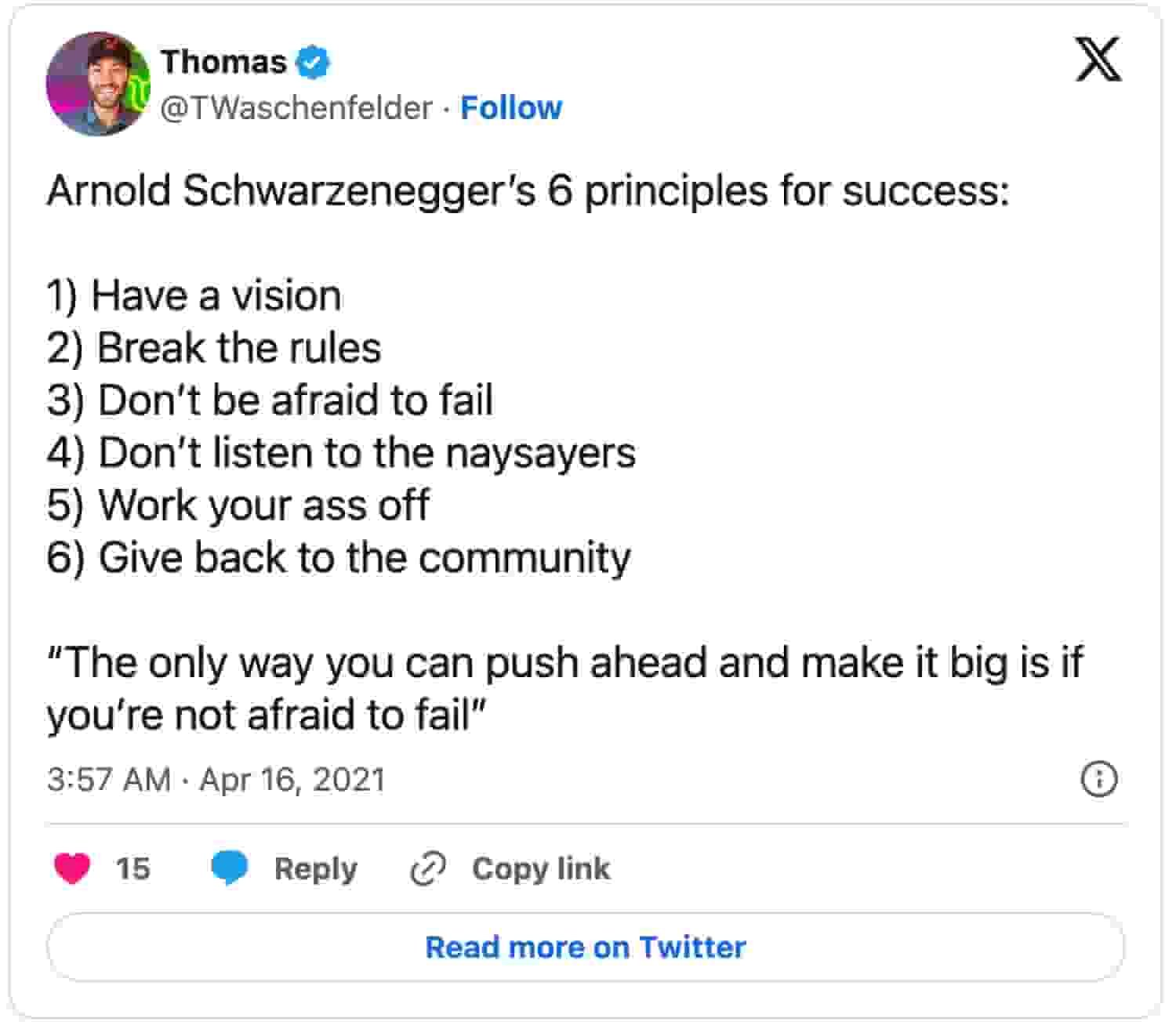Play The Long Game: Delay Gratification Now To Get More Later
“In a long-term game, it seems that everybody is making each other rich. And in a short-term game, it seems like everybody is making themselves rich.”
All of life’s great returns come from compound interest. Whether you are compounding money, relationships, or skills, time is your greatest force multiplier.
And that means you want to play the long game. You want to delay gratification now so you can get more later. Successful businesses, investors, wealth creators, athletes, and entrepreneurs all play the long game to maximize returns. Here’s how they do it…
Play The Long Game In Investing.
Investing your money instead of spending it now is a form of delayed gratification. You are giving up something now to get more later.
Warren Buffett is worth about $86 billion. The majority of his wealth (99.7% of it) was created after his 52nd birthday. This is because of the power of compound interest. The greatest gains are found at the end of the compounding period.
There are people who go their entire lives without ever realizing the awesome power of compound interest. Buffett learned it in his tweens. He read a book called One Thousand Ways to Make $1,000 and found that if you compound $1,000 at just ten percent for 25 years, you end up with over $10,800.
This prompted him to look at time in a different way; where the present moment is married to the future through the power of compounding. Buffett was playing the long game at the age of 10. He was giving up something now to get more later.
Buffett and Charlie Munger built their business, Berkshire Hathaway, by playing the long game. They are patient and calculated when buying both common stocks and private businesses. They never FOMO (fear of missing out) into the hot investment of the day.
Instead, they wait to find an obvious “1-inch bar” to jump over. Buffett calls it waiting for the “fat pitch” - a big opportunity with a low downside that’s entirely within your circle of competence that you know you have a good chance of hitting out of the park. That’s when you swing for the fences.
This patient approach has allowed Munger and Buffett to compound their money at about 19 percent annually over 53 years (see Buffett’s 2017 Letter to Berkshire Shareholders for reference).
Here’s what Munger has to say about their success:
“Being prepared, on a few occasions in a lifetime, to act promptly in scale, in doing some simple and logical thing, will often dramatically improve the financial results of that lifetime. A few major opportunities, clearly recognizable as such, will usually come to one who continuously searches and waits, with a curious mind that loves diagnosis involving multiple variables. And then all that is required is a willingness to bet heavily when the odds are extremely favorable, using resources available as a result of prudence and patience in the past.”
Munger is describing first, extreme patience, intercut with periods of extreme action, followed again by extreme patience to see the results of your bet. That’s the long game.
Play The Long Game In Relationships.
The long game applies to more than just compounding capital. Naval Ravikant, a Silicon Valley entrepreneur and start-up investor, argues that taking a long view brings massive benefits to both personal and business relationships.
Here’s Naval talking about this in his podcast series, How To Get Rich: Every Episode:
“Long-term games are good not just for compound interest, they’re also good for trust…When you have been doing business with somebody, you’ve been friends with somebody for ten years, twenty years, thirty years, it just gets better and better because you trust them so easily. The friction goes down, you can do bigger, and bigger things together…Whether it’s goodwill, or love, or relationships, or money.”
I’ve found this to be true. My wife and I have been together for more than six years. Each day that we commit to each other, our relationship gets stronger. The friction continues to go down. We can aim for bigger things together than we would have aimed for on our own. Our relationship is compounding over time because we are playing the long game.
The same is true for business partners. Naval has a quote that reads:
“If you can't see yourself working with someone for life, don't work with them for a day.”
The goal is to find and then stick with the people you want to work with for decades. It takes time and a series of iterated games with the same players to prove you’re trustworthy.
This becomes difficult if you are constantly switching career paths or moving to a new location. Naval warns us that each time you change paths, you have to start over with a new set of “players.” These are people that you don’t know and don’t trust, and who don’t trust you.
I’ve experienced this drawback firsthand. I’ve traveled between Los Angeles and Toronto for the past few years. It felt like I had one leg in each location, while never being fully present in either place. The mobility had its advantages, but my network is not as strong as it would be if I lived and worked in one location permanently.
Most people don’t think hard enough about where they want to live. This decision has a massive impact on the trajectory of your life. Choose wisely, and play the long game.
Play the long game In Deal-Making.
Playing the long game works in deal-making too. In Tim Ferriss’s book, Tools of Titans, Tim interviews Arnold Schwarzenegger about the deal he made for the movie Twins, with Danny DeVito.
Arnold didn’t get paid upfront for the movie. Instead, DeVito, Ivan Reitman (the director), and Arnold did a back-end profit-sharing deal where they would get a percentage of the movie’s profits.
This meant that if the movie flopped, they wouldn’t get paid for the work they put in. They were giving up something now for future upside.
The movie went on to be successful, and the three of them made out well. Arnold says he made more from that movie than any other in his career.
This is the power of playing the long game. You give up something now to get more later.
Play the long game, but also enjoy your life.
Buffett has an important warning for us though regarding delaying gratification: don’t go overboard.
The long game is important, but you still need to do the things you love. Here’s what Buffett has to say on that matter from the 2019 Berkshire Hathaway shareholder meeting in Omaha:
“I think there’s a lot to be said for doing things that bring you and your family enjoyment…I always believe in spending two or three cents out of every dollar I earn [on fun]…I probably know as many rich people as just about anybody. If you aren’t happy having $50,000 or $100,000 dollars, you’re not going to be happier if you have $50 million… Don’t go overboard on delayed gratification.”
There is power in the long game.
Just make sure you enjoy the journey.
Start now.
If You Want More Ideas Like This, Follow Me On Twitter And Subscribe To My Newsletter:
ARTICLE SOURCES
Warren Buffett story is from the Snowball:
Schroeder, Alice. The Snowball: Warren Buffett and the Business of Life. Random House Publishing Group. Kindle Edition.
Arnold Schwarzenegger interview is from Tools of Titan:
Ferriss, Timothy. Tools of Titans: The Tactics, Routines, and Habits of Billionaires, Icons, and World-Class Performers. HMH Books. Kindle Edition.
Here is Tim Ferriss’ site: https://tim.blog/
Here is Naval Ravikant’s site: https://nav.al/





